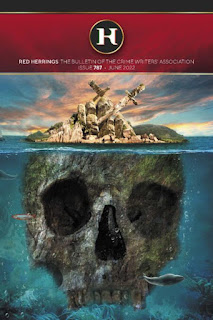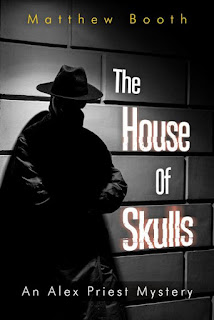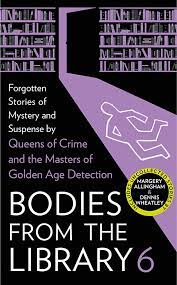The British Crime Writing Archives are held at Gladstone's Library, in Hawarden, north Wales. This wonderful place is the home of the archives of both the Crime Writers' Association and the Detection Club. The process of developing the archives and then cataloguing them is a very long-term one, but earlier this year, new loan agreements were signed between the Library and the CWA and the Detection Club which ensures that the Library will continue to be the home (or perhaps in future, as mentioned below, the principal home) of the archives.
This is an exciting development which gives all three organisations a great deal of confidence for the future. As honorary archivist for both the CWA and the Detection Club, I'm truly delighted that the future of the archives is now more secure than ever before. There's a great deal of work still to be done, but at least sound foundations are now in place.
The above photos show a handful of books from those that have been donated to the archives. These particular donations come from various sources, including the family of E.R. Punshon (a former Secretary of the Detection Club), Peter Lovesey, the estates of Robert and Louise Barnard, and myself. Space for books of individual authors is extremely limited at present, however. Yet we are keen to preserve as many as is practicable, and if any readers of this blog know of any other suitable archives in the UK that we could collaborate with, I'd be very glad to know.
One of the highlights of my annual calendar is Alibis in the Archive, and this weekend festival will be held at Gladstone's Library from 7 to 9 June 2024. Tickets will go on sale shortly and if you're interested, do register that interest with the Library right away, since once tickets are made available, they usually go very quickly. If you can't make it in person, you can still take part online - a good option for those who are overseas in particular.
We have some wonderful speakers lined up for Alibis, including an international bestseller and the creator of a very famous TV crime series. So the weekend will be quite something. I do hope that many of you can join us - and, by so doing, support this marvellous library and the archives project.
.jpg)














